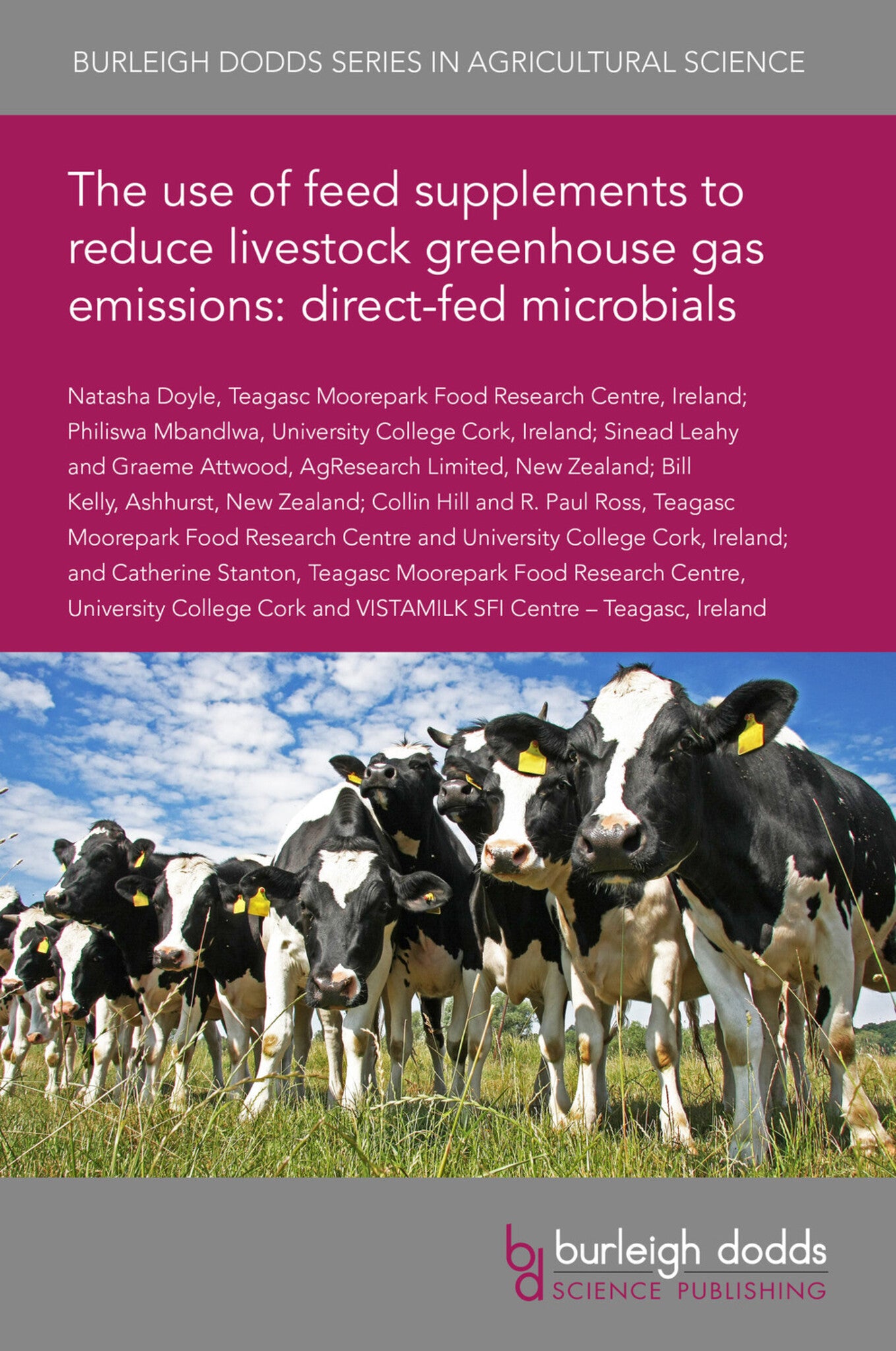We're sorry. An error has occurred
Please cancel or retry.
The use of feed supplements to reduce livestock greenhouse gas emissions: direct-fed microbials

Some error occured while loading the Quick View. Please close the Quick View and try reloading the page.
Couldn't load pickup availability
- Format:
-
19 July 2021


TECHNOLOGY & ENGINEERING / Agriculture / Sustainable Agriculture, Dairy farming, SCIENCE / Global Warming & Climate Change, TECHNOLOGY & ENGINEERING / Agriculture / Animal Husbandry, Sustainable agriculture, Climate change

1 Introduction 2 Methane and agriculture 3 Nitrous oxide and carbon dioxide in agriculture 4 Direct-fed microbials (DFMs) 5 Direct-fed microbials (DFMs) and greenhouse gas (GHG) reduction 6 Strengths and challenges of direct-fed microbials (DFMs) 7 Other methane mitigation methods 8 Conclusion 9 Acknowledgements 10 References



